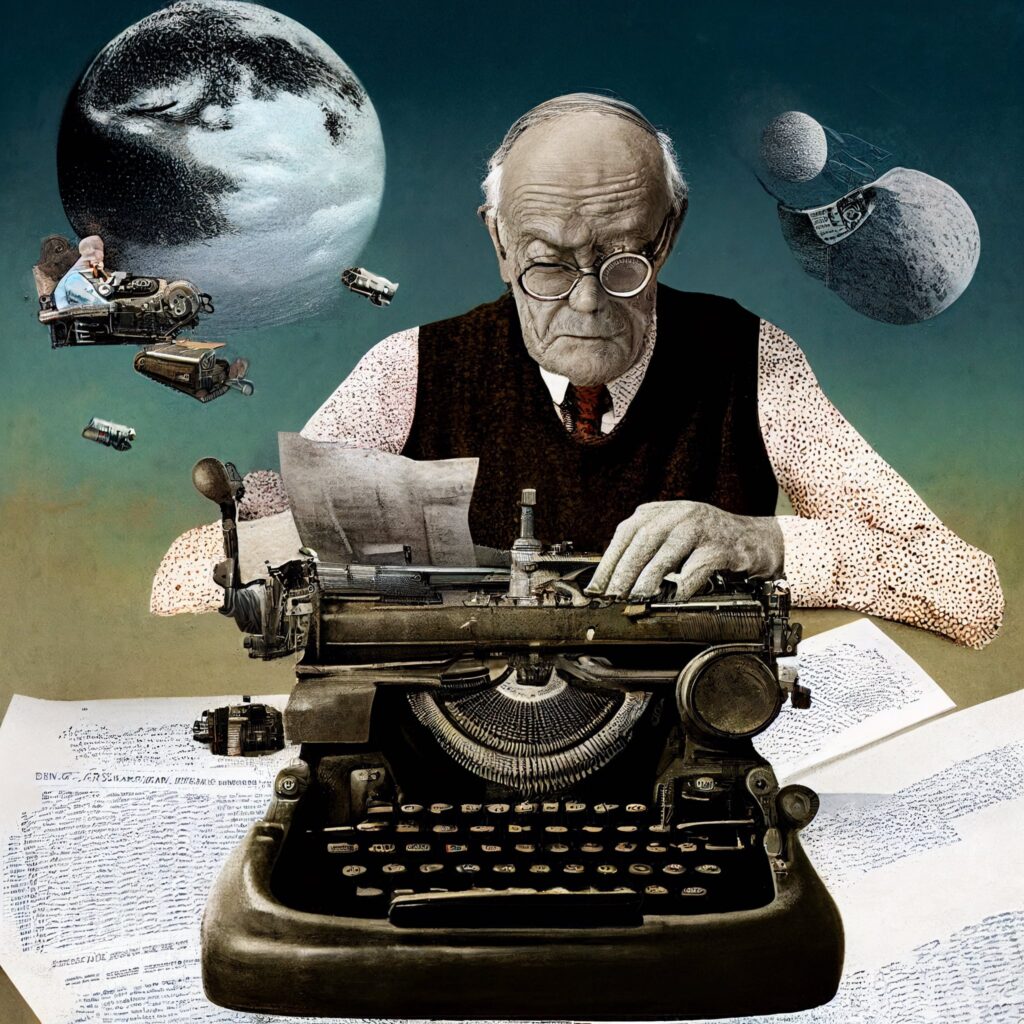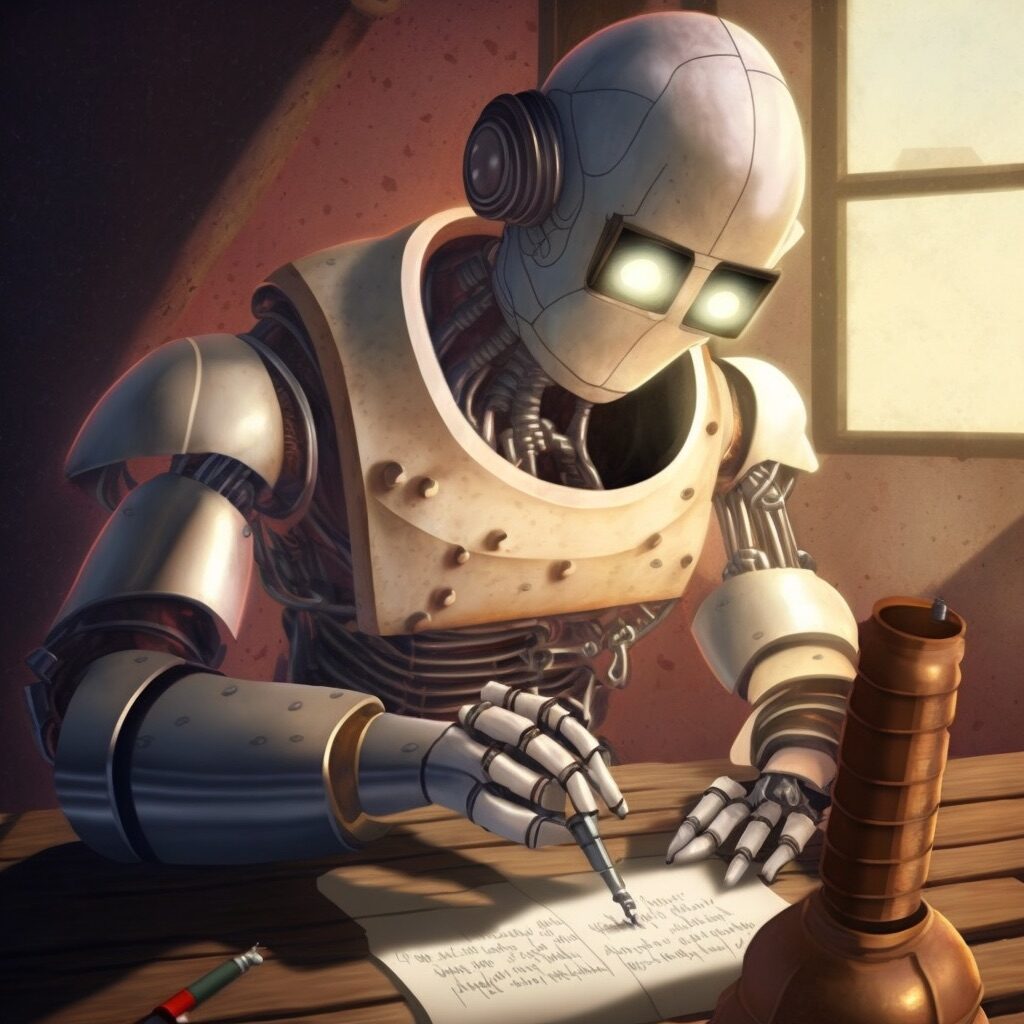
Imagine asking Isaac Asimov or Arthur C Clarke sixty years ago what their most optimistic vision of humankind’s future might look like. Perhaps they would have suggested a utopia where robots and computers do all the menial jobs leaving humans to concentrate on pursuits like art and writing.
Cleverly we seem to be working on the exact opposite.
I’ve read plenty of stories this year about working conditions at Amazon and Tesla, and about clothes and phones made in sweatshops. Workers rights are eroded as capitalism continues to accrue power and a cost of living crisis gathers pace. People visit food banks in growing numbers while many worry about how they will pay to heat their homes.
Computers on the other hand have been having a great year. They’ve been learning to paint and experimenting with creative photography. They’ve been working on their novel, too, and enjoying driving lessons. Some have been doing a bit of shooting. And with all these new skills they’re looking forward to well paid jobs in the near future. So, good for them.
My obvious question – within the remit of the Two Reel Cinema Club – is: what does this mean for screenwriting?

So all around AI wag Guy Parsons has apparently ‘written’ a film treatment using ChatGPT. (I accidentally typed ‘Chat Git’ there the first time round. Should have left it.) Having just read the treatment, I can confirm that I’ve definitely heard real pitches for films far worse than this. In fact I’ve seen real, finished movies that are worse than this.
Critics of AI will tell you that ChatGPT cannot make anything original. It simply takes elements of what it’s been fed and spits them back out in a new configuration.
But then critics of commercial cinema will tell you the same thing.
Once the computers become competent at writing screenplays (it won’t be long) the question will no longer be, ‘Can it be done?’ And we seem already to be beyond the question, ‘Should it be done?’
Instead, the question will be, ‘Why do we make films at all?’
So … why do we make films? If the answer is only ‘to make money’, then we the screenwriters may be doomed. Soon computers will be able to write novel-seeming stories that are structurally satisfying, airtight and consistent, superficially surprising, and commercially viable. And … maybe that’s fine. Maybe that’s enough.
But if we can decide that the process is an important part of the output, that the act of film-making, of writing and creation has value beyond its efficiency at turning a profit, maybe we’ll still have a chance.
Who wants to take that bet, though?
